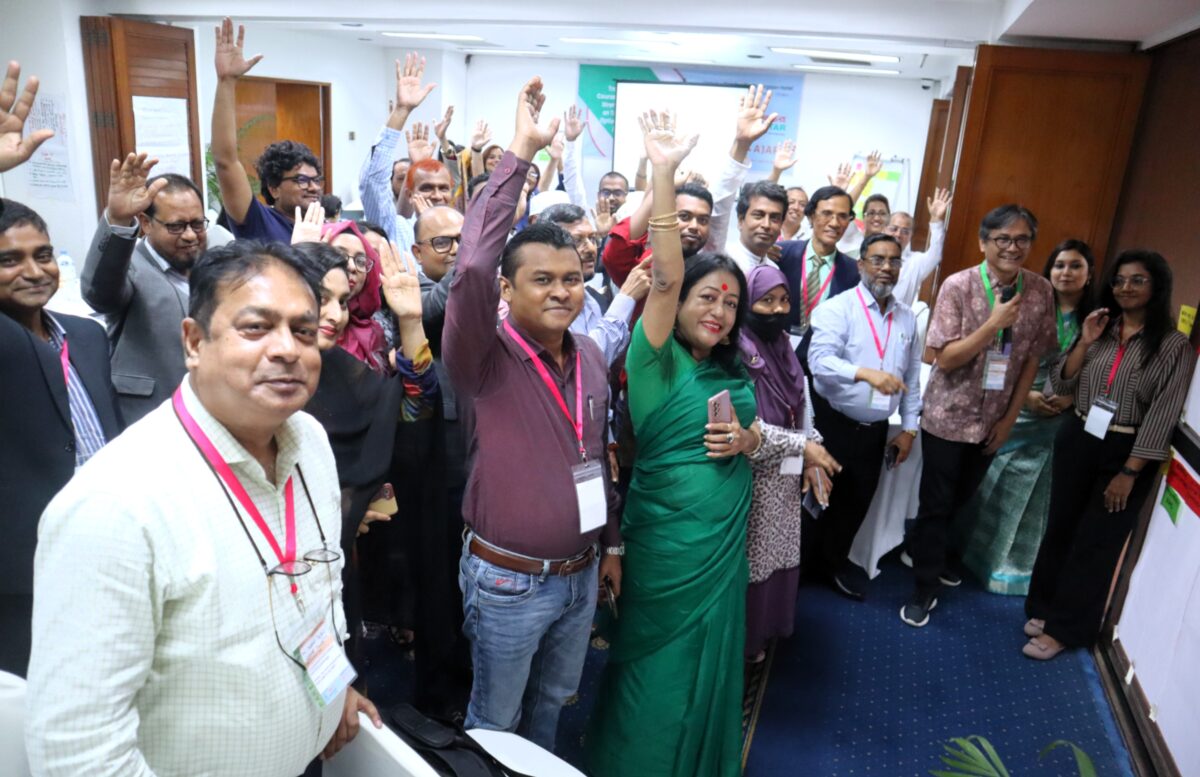NEWS | 23 Aug 2025
Advancing transitional justice in Bangladesh
Civil society and regional experts convene to chart ways forward

Amid Bangladesh’s political transition, over 80 participants convened in Dhaka for a three-day course and exchange on justice, accountability, and democratic reform.
Bangladesh’s recent political shift has created a rare and urgent opportunity for democratic renewal, while also raising crucial questions about justice for past abuses and long-term institutional reform. Against this backdrop, more than 80 human rights activists, civil society leaders and experts from various backgrounds gathered in Dhaka to discuss ways forward. Organised by Asia Justice and Rights (AJAR) and Actions for National Transformation, Advancement & Reforms (ANTAR), and with the support of the Global Learning Hub for Transitional Justice and Reconciliation, the meeting sought to foster meaningful dialogue around justice, accountability, and reform in the country.
Global lessons, local realities
Over the course of three days, participants engaged with essential frameworks and practical tools to strengthen truth-seeking, accountability, reparations and institutional reform in Bangladesh. Other members from our network contributed additional perspectives. Annah Moyo from the Centre for the Study of Violence and Reconciliation as well as Paola Molano Ayala from Dejusticia offered comparative insights from South Africa and Colombia that highlighted the importance of survivor-centred and locally led approaches to addressing the root causes of conflict. Thai and Indonesian representatives from the Transitional Justice Asia Network also shared reflections from their experiences.
Building on these regional and global lessons, participants worked collaboratively to outline a transitional justice roadmap tailored specifically to Bangladesh’s current context. This allowed them to root demands for justice in the voices and experiences of those who lived through the previous violence and repression. As one participant remarked: “The training not only broadened our conceptual framework but also enhanced our practical skills to engage with transitional justice processes in diverse contexts”.
Solidarity in times of transition
Bangladesh has long experienced political instability, with power alternating between its two major parties, the Awami League and the Bangladesh Nationalist Party, often amidst accusations of corruption, election manipulation, and suppression of dissent. Recent years under Prime Minister Sheikh Hasina saw civic space further constricted, particularly for student movements and human rights defenders.
In mid-2024, widespread student-led protests erupted over a controversial job quota system, symbolising growing frustration with authoritarian rule. The government's violent crackdown resulting in more than 600 deaths, tens of thousands of injuries, and mass arrests sparked national and international outcry. Mounting pressure ultimately led to Sheikh Hasina’s resignation and the appointment of an interim government led by Nobel Peace Prize laureate Muhammad Yunus.
The exchange in Dhaka marked a significant step in building solidarity between survivors, civil society, and the interim government. It reflects growing momentum to ensure that the transition in Bangladesh prioritises truth, justice, and dignity for all, especially for victims and marginalised communities, including the Rohingya.